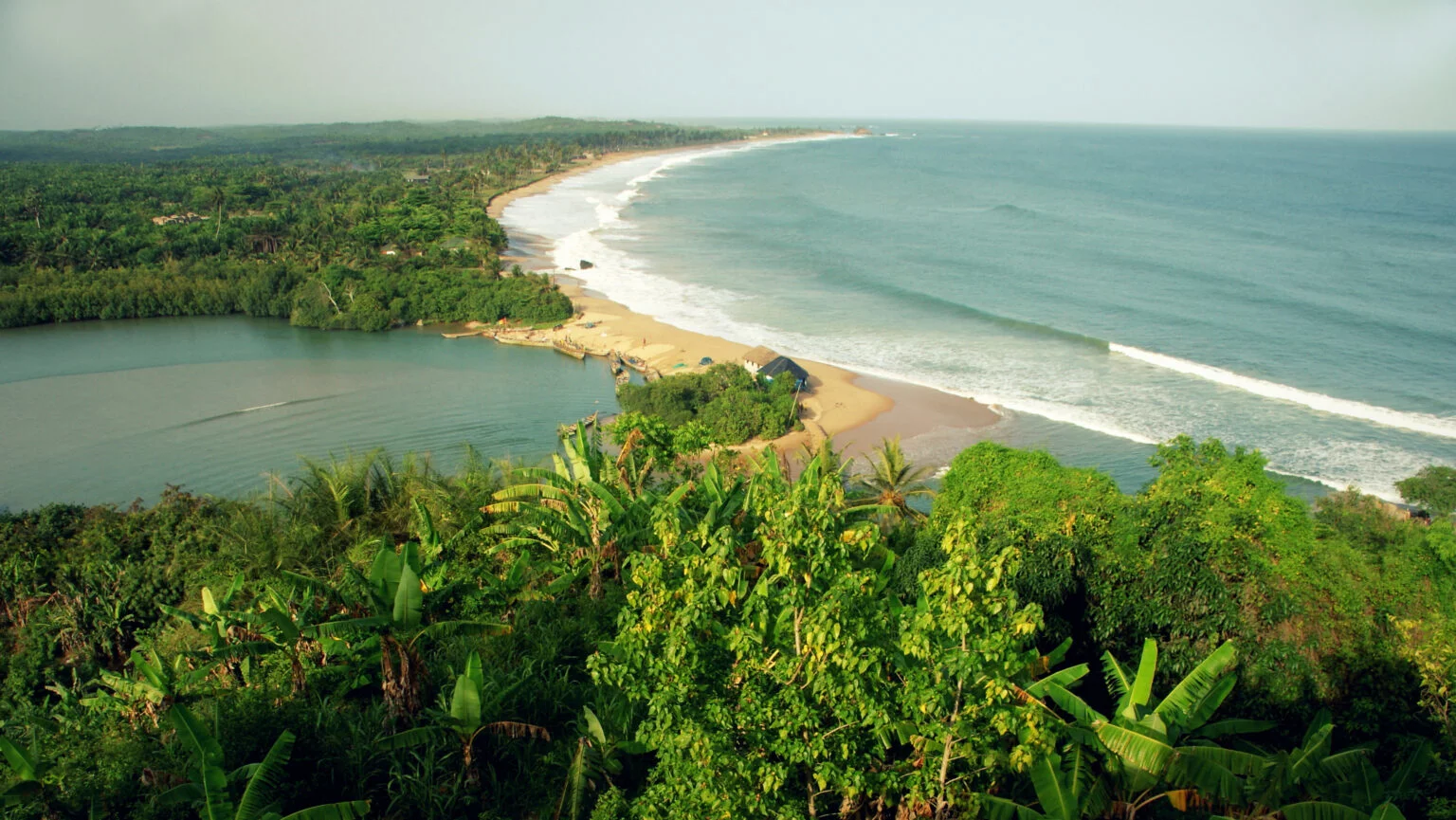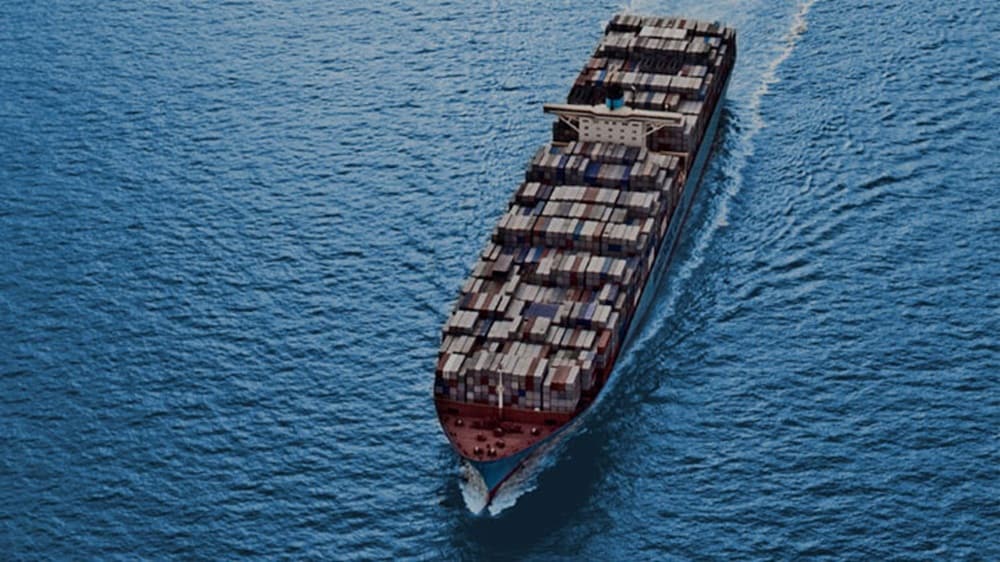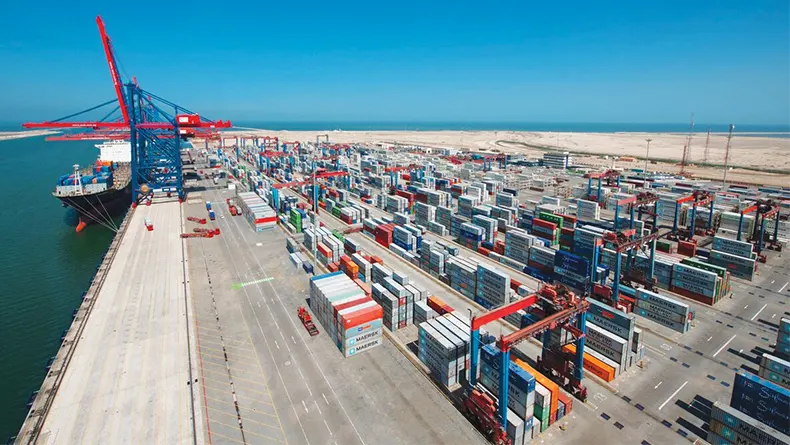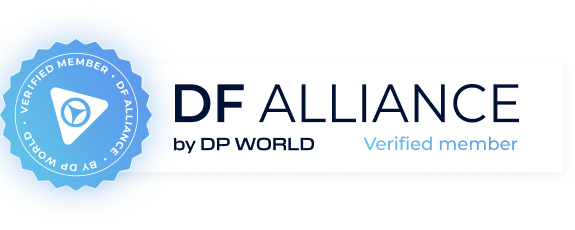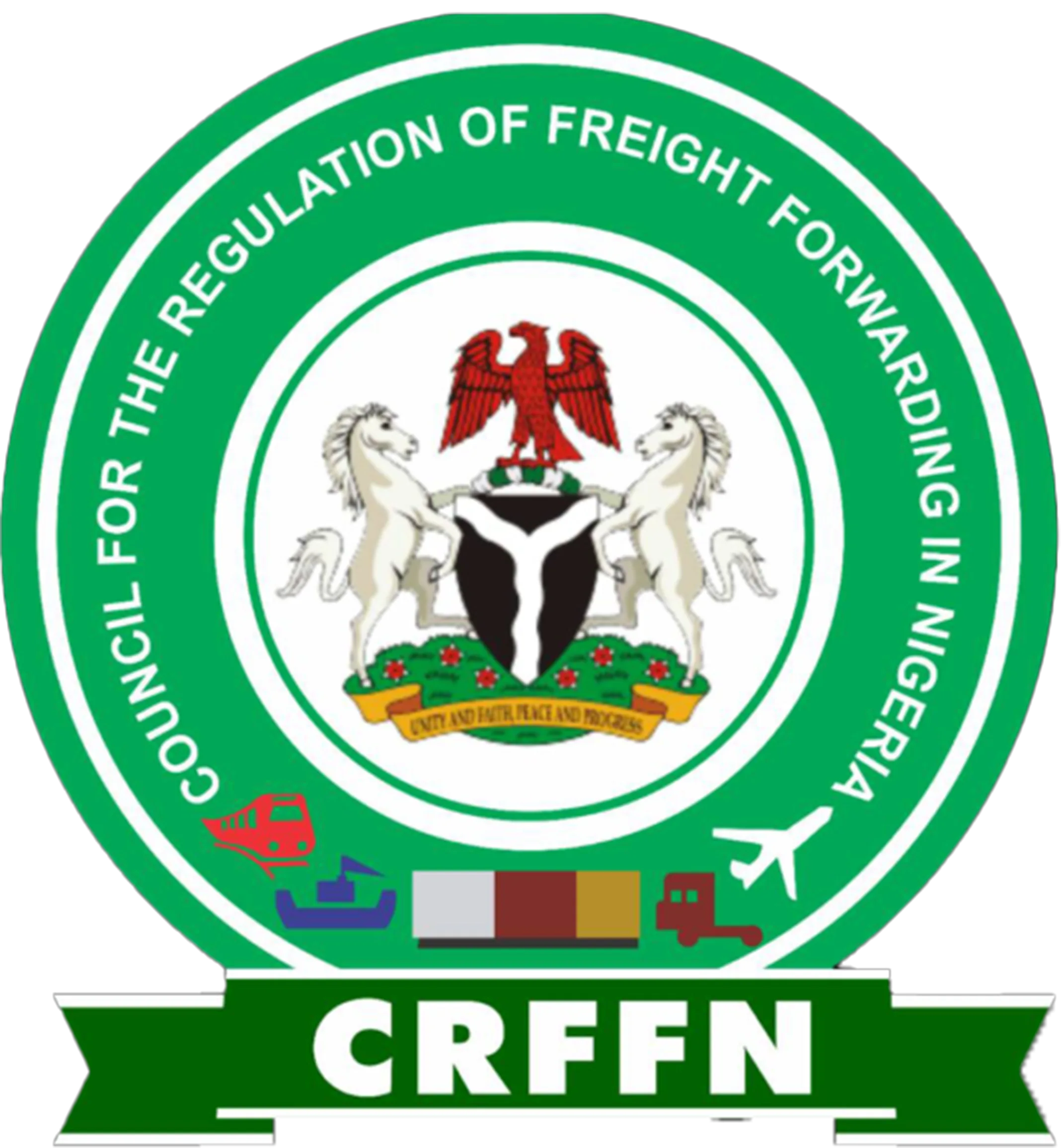Connecting Namibia across Africa and beyond
Limark’s established presence in Namibia enables businesses to navigate the complexities of this coastal nation’s evolving trade landscape. Our deep understanding of Southern African logistics ensures efficient movement of cargo through Namibia’s strategic ports, seamlessly connecting the country to regional and global markets.
With an extensive network spanning over 40 African countries, Limark offers tailored solutions for your Namibian shipments. Whether you’re exporting Namibia’s rich mineral resources, agricultural products, or fish, or importing essential equipment and materials, we provide comprehensive logistics services to optimize your supply chain, reduce costs, and enhance overall efficiency.

Import regulations
Importing goods to Namibia requires navigating specific procedures and documentation. Here’s a breakdown of the essential requirements:
Product categories requiring import licenses/permits
Food and agricultural products
Imports of meat and meat products, dairy products, fish, eggs, honey, and live animals require import permits from the Ministry of Agriculture, Water and Land Reform (MAWLR).
Plants and plant products require phytosanitary certificates from the MAWLR.
Import permits from the Namibian Agronomic Board (NAB) are required for specific agricultural products like cereals, maize, wheat, and horticultural products.
Pharmaceuticals and Medical Devices
- Importation of pharmaceuticals and medical devices is regulated by the Ministry of Health and Social Services (MoHSS)
- Import permits and product registration are mandatory
- Strict quality control measures and documentation are required
Chemicals and Hazardous Materials
- Imports of chemicals and hazardous materials are regulated by the Ministry of Industrialization and Trade (MIT)
- Import permits are required, and detailed safety data sheets (SDS) must be submitted
- Proper packaging, labeling, and handling procedures are crucial
Vehicles and Spare Parts
- The import of vehicles and spare parts is regulated by the MIT and the Namibia Revenue Agency (NamRA)
- Import permits are required for vehicles
- Age restrictions and roadworthiness certificates may be applicable for used vehicles.
Other regulated products
- Additional import licenses or permits may be required for specific products like firearms, ammunition, explosives, radio communication equipment, and dual-use goods.
- Consult the relevant ministries or agencies for specific requirements.
Prohibited and restricted imports
Prohibited
- Narcotic drugs and psychotropic substances
- Pornographic and obscene materials
- Counterfeit and pirated goods
- Hazardous waste (Basel Convention)
- Ozone-depleting substances (Montreal Protocol)
- Used tires
Restricted (require import permits)
- Live animals and animal products
- Plants and plant products
- Firearms and ammunition
- Explosives
- Radioactive materials
- Used vehicles
- Second-hand clothing (except for personal effects)
Relevant agencies
- Namibia Revenue Agency (NamRA) – Customs and Excise
- Ministry of Agriculture, Water and Land Reform (MAWLR)
- Ministry of Health and Social Services (MoHSS)
- Ministry of Industrialization and Trade (MIT)
- Namibian Agronomic Board (NAB)
- Ministry of Environment, Forestry and Tourism (MEFT)
- Meat Board of Namibia
- Namibia Medicines Regulatory Council (NMRC)
Free Time
- Typically, 7 days for general cargo and 14 days for containerized cargo after discharge.
- Varies depending on the shipping line and port.
Demurrage charges
- Applied when the free time is exceeded
- Calculated per container, per day
- Rates vary depending on the shipping line, container size, and time elapsed
Detention charges
- Applied when the container is held beyond the agreed-upon time for return to the shipping line after being picked up from the port
- Separate from demurrage charges
- Rates vary depending on the shipping line and container size
Storage limitations
- Port terminals have limited storage capacity
- Containers not cleared within the allowed time are moved to an off-dock depot at the importer’s expense, incurring additional storage fees
Calculation methods
- Demurrage and detention are usually calculated based on calendar days, including weekends and public holidays
- Some shipping lines may offer a grace period before applying charges.
Commercial Invoice
- Detailed description of goods (including HS codes, brand, model, etc.)
- Quantity, weight, and unit price of goods
- Total invoice value in USD or NAD (Namibian Dollar)
- Incoterms (International Commercial Terms)
- Payment terms (e.g., letter of credit, cash against documents)
- Full details of the consignee and consignor
Packing List
- Detailed list of all items in each package
- Description, quantity, weight, and dimensions of each item
- Package markings and numbers
Bill of Lading/Airway Bill
- Evidence of the contract of carriage between the shipper and carrier
- Details of the shipment, including the consignee, consignor, and port of loading/discharge
- Number and type of packages
- Gross weight and measurement of the cargo
Certificate of Origin
- Declares the origin of the goods
- May be required for preferential tariff treatment under trade agreements (e.g., SADC)
Import Permit/License (for regulated goods)
- Issued by the relevant government agency
- Required for specific products as mentioned above
- Customs Declaration (DAU):
- Submitted through the ASYCUDA World system
- Requires detailed information about the shipment, importer, and goods
Other certificates
- Phytosanitary certificate (for plants and plant products)
- Health certificate (for animals and animal products)
- Certificate of analysis (for chemicals and food products)
- CITES permit (for endangered species)
Import licenses and permits
- Identify the Regulating Agency: Determine the specific ministry or agency responsible for your goods based on the product category.
- Gather Required Documents:
- Proforma invoice or commercial contract
- Technical specifications and data sheets (if applicable)
- Certificates of origin, analysis, quality, etc.
- Business registration documents (if applicable)
- Taxpayer identification number (TIN)
- Any additional documentation specific to the product or agency
- Submit Application:
- Complete the import permit application form.
- Submit the application along with the required documents and fees to the relevant agency.
- Applications are typically submitted online or in person.
- Processing and Approval:
- The application will be reviewed and processed by the agency.
- The processing time varies depending on the product and agency, but it can take several weeks.
- If approved, the import permit/license will be issued.
- Validity and Renewal:
- The validity period of import permits varies depending on the product and agency.
- Renewal procedures involve submitting a new application with updated documents before the expiry date.
- Costs:
-
- Import permit fees vary depending on the product and agency.
- Additional costs may include inspection fees and testing fees.
Customs clearance procedures
- Pre-shipment Inspection (PSI):
- Mandatory for most commercial shipments valued over NAD 50,000.
- Conducted by authorized inspection companies in the country of origin.
- Verifies the quality, quantity, and value of goods before shipment.
- Arrival and Unloading:
- Vessel or aircraft arrives at the port or airport.
- Cargo is unloaded and placed in customs control.
- Document Lodgement and Declaration:
- Importer or their agent lodges import documents (commercial invoice, packing list, bill of lading, etc.) with customs.
- Electronic declaration is submitted through the ASYCUDA World system.
- Assessment and Payment:
- Customs assesses import duties, taxes, and fees based on the HS code, value, and origin of the goods.
- The importer or their agent pays the assessed amount.
- Inspection (if required):
- Customs may select shipments for physical inspection based on risk assessment.
- Release of Goods:
- If the shipment complies with all regulations and requirements, and duties/taxes are paid, customs releases the goods.
Port/Terminal operations
Major Seaports
- Walvis Bay: The main commercial port, handling containerized, bulk, and liquid cargo.
- Lüderitz: A smaller port primarily handling fishing and mining exports.
- Air Cargo Hub:
- Hosea Kutako International Airport (WDH): The main airport for air cargo imports.
Cut-off dates
- Vary depending on the shipping line and destination
- Confirm with your shipping agent or freight forwarder well in advance
Documentation Requirements at Terminals
- Ensure all required documents are in order before the shipment’s arrival to avoid delays.
- Original documents may be required for verification at the terminal.
Container Pickup/Drop-off and Storage
- Coordinate with your shipping agent or freight forwarder for container pickup and drop-off procedures.
- Be aware of free time limitations and potential demurrage/detention charges.
Disclaimer: This information is based on the latest available data and may be subject to change. Always consult with relevant authorities and experts for the most up-to-date and accurate information.
Export regulations
Get a detailed guide that provides an in-depth look into every aspect of the export process to ensure your goods are shipped efficiently and in compliance with all legal standards.
Product categories requiring export licenses/permits
Minerals and Ores
Diamonds: Export permits from the Ministry of Mines and Energy (MME) are required. Diamond exports are subject to the Kimberley Process Certification Scheme (KPCS) to prevent the trade of conflict diamonds. Each shipment must be accompanied by a KPCS certificate, and exporters must adhere to strict due diligence measures.
Uranium: Export licenses from the MME are mandatory, with additional approvals from the Ministry of Environment, Forestry, and Tourism (MEFT) due to environmental concerns.
Other Minerals: Exports of copper, zinc, lead, and other minerals also require permits from the MME, ensuring compliance with mining regulations and environmental standards.
Fish and fishery products
Hake: Namibia’s most valuable fish export, hake, is subject to strict quotas and licensing requirements. Exporters must obtain quotas from the Ministry of Fisheries and Marine Resources (MFMR) and comply with sustainable fishing practices.
Horse Mackerel: A significant export commodity, horse mackerel exports also require permits from the MFMR and adhere to established quotas.
Other Fish Species: Permits are required for exporting other fish species, and specific regulations may apply depending on the species and conservation status.
Meat and meat products
Beef: Namibia is known for its high-quality beef, which is exported to various international markets. Export permits from the Directorate of Veterinary Services (DVS) under the MAWLR are mandatory.
Processed meat products: Exports of processed meat products like sausages and biltong also require permits from the DVS and must meet stringent sanitary and phytosanitary (SPS) standards.
Live Animals
Cattle: Exports of live cattle require permits from the DVS. Additional health certificates and quarantine requirements may apply depending on the destination country.
Small stock: Exports of sheep and goats also require DVS permits and adherence to health and quarantine regulations.
Other regulated products
Pharmaceuticals: Export permits are required from the Namibia Medicines Regulatory Council (NMRC).
Medical devices: Exports of medical devices may require permits from the MoHSS.
Chemicals: The MIT may require export permits for certain chemicals, especially hazardous materials.
Dual-use goods: Exports of dual-use goods, which have both civilian and military applications, are strictly regulated and require permits from the Ministry of Trade and Industry.
Prohibited and restricted exports
Prohibited exports
- Narcotic drugs and psychotropic substances
- Pornographic and obscene materials
- Counterfeit and pirated goods
- Hazardous waste (Basel Convention)
- Ozone-depleting substances (Montreal Protocol)
- Unprocessed diamonds (not certified by the KPCS)
- Protected wildlife and endangered species (unless authorized by CITES)
Restricted Exports (require specific permits and may have additional conditions):
- Live animals and animal products
- Plants and plant products
- Rough diamonds
- Weapons and ammunition
- Explosives
- Radioactive materials
- Dual-use goods
- Certain chemicals and pesticides
Required documents
Commercial Invoice: Detailed description of goods (including HS codes, specifications, quantity, weight, value), Incoterms, payment terms, and complete details of the consignee and consignor.
Packing List: Itemized list of goods in each package, including description, quantity, weight, dimensions, and package markings.
Bill of Lading/Airway Bill: Evidence of the contract of carriage between the shipper and carrier, including details of the shipment, consignee, consignor, and port of loading/discharge.
Certificate of Origin: Issued by the Namibia Chamber of Commerce and Industry (NCCI), certifying the origin of the goods. It may be required for preferential tariff treatment under trade agreements.
Export Permit/License (if applicable): Issued by the relevant government agency for regulated products.
Export Declaration (EXD): Electronic declaration submitted through the ASYCUDA World system, providing detailed information about the shipment.
Other Supporting Documents: May include sanitary/phytosanitary certificates, health certificates, certificates of analysis, CITES permits, and other documents specific to the product or destination country.
Export Declaration Process (through ASYCUDA World):
- Registration: Exporters must register on the ASYCUDA World platform and obtain a unique identification number.
- Declaration: Prepare and submit the EXD electronically through ASYCUDA World.
- Verification: Customs verifies the EXD and supporting documents.
- Payment: Pay any applicable export duties or taxes.
- Approval: Customs approves the export and issues an export permit (if required).
Required export certificates
- Phytosanitary Certificate (for plants and plant products): Issued by the MAWLR
- Health Certificate (for live animals and animal products): Issued by the DVS
- Certificate of Analysis (for certain products): Issued by accredited laboratories
- Kimberley Process Certificate (for rough diamonds): Issued by the MME
- CITES Permit (for endangered species): Issued by the MEFT
Major Ports
- Walvis Bay: The main commercial port, handling containerized, bulk, and liquid cargo. It has modern facilities and is well-connected to major shipping routes.
- Lüderitz: A smaller port primarily handling fishing and mining exports. It is less congested than Walvis Bay and can be a good option for smaller shipments.
Cut-off Times and Procedures
- Vary depending on the shipping line, destination, and type of cargo
- Confirm with your shipping agent or freight forwarder well in advance
- Procedures typically include document submission through ASYCUDA World, customs clearance, security screening, and container loading
Container Storage and Free Time
- Both Walvis Bay and Lüderitz ports offer container storage facilities
- Free time for storage varies depending on the shipping line and the type of cargo, typically ranging from 3 to 7 days
- Storage fees apply after the free time expires
Returning empty containers
- Coordinate with your shipping line or agent to return empty containers to the designated depot
- Failure to return containers on time may result in detention charges
Duties, taxes, and fees
Export duties: Generally, Namibia does not impose export duties on most goods. However, specific export levies may apply to certain products (e.g., fish, minerals).
Other Fees: Customs processing fees, document handling charges, terminal handling charges, storage fees (if applicable), and any specific taxes or levies related to the exported product.
Disclaimer: This information is based on the latest available data and may be subject to change. Always consult with relevant authorities and experts for the most up-to-date and accurate information.

Expertise You Can Trust
Seamless cross-border shipping to and from Namibia
Navigating Namibia’s dynamic trade landscape and intricate regulations can be a daunting challenge. Limark, a trusted leader in Southern African logistics, simplifies the complexities of cross-border trade, ensuring your cargo moves seamlessly and efficiently through this thriving market.
Our extensive experience in Namibia, coupled with a deep understanding of local regulations and customs procedures, guarantees reliable and cost-effective shipping solutions. Partner with Limark to optimize your supply chain, reduce transit times, and unlock the full potential of your Namibian trade operations. Contact us today and experience the difference of a truly integrated logistics partner.
Get Expert Guidance
Contact our regional experts
Partner with experienced freight forwarders and customs brokers for seamless shipping to and from Namibia. Ensure full documentation compliance with the guidance and logistics services of our team.
Sales enquiries
We’re happy to talk to you about your shipment needs anytime. Please get in touch with us.
Ready to ship?
Get your shipment moving faster. Request a quote today for our end-to-end supply chain services.
Other African Countries
